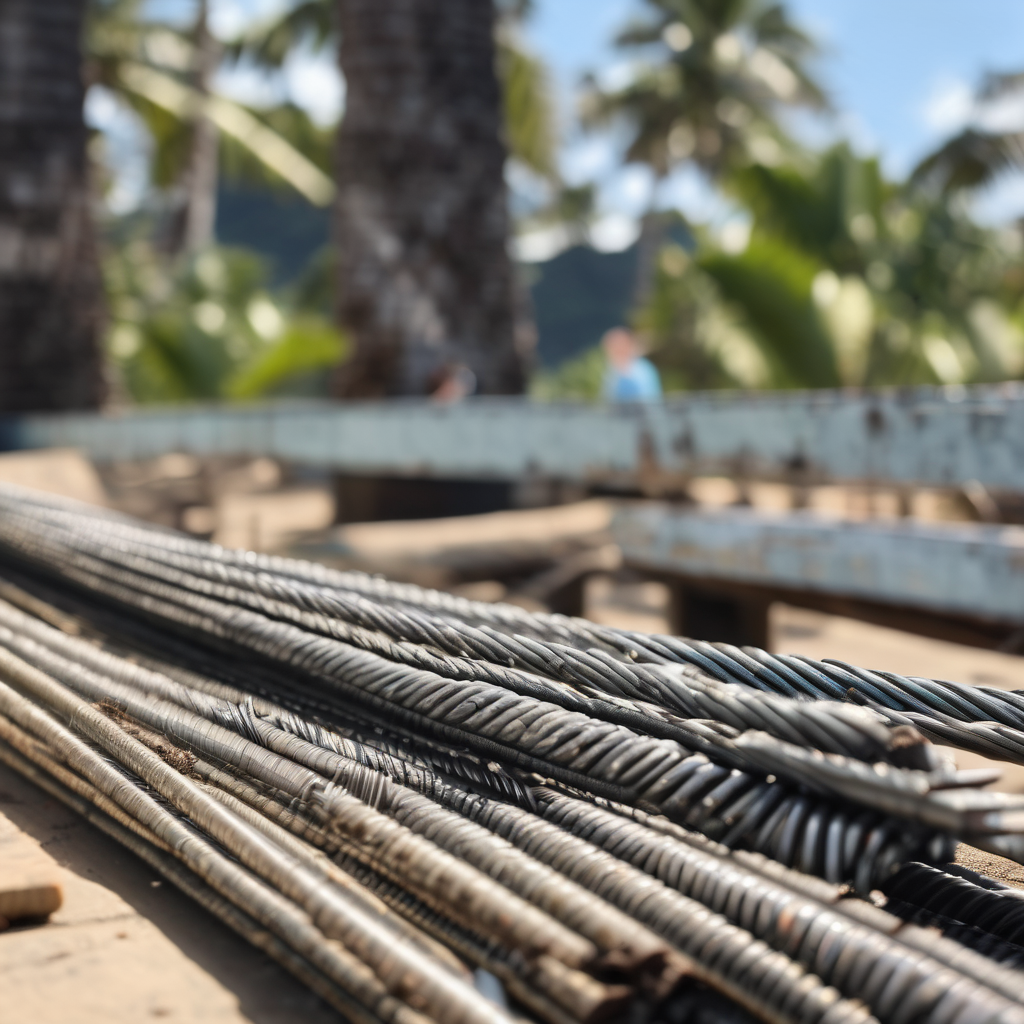The General Secretary of the Fiji Association of Architects, Setoki Tuiteci, has emphasized the urgent need for stricter regulations and proper accreditation of construction materials, particularly steel imported from various parts of the world. Speaking at the recent Extra Fiji Architecture Conference and Trade Exhibition held at the Sheraton Fiji Resort in Denarau, Tuiteci highlighted the importance of quality assurance in maintaining public safety given Fiji’s heavy reliance on imported steel.
Tuiteci stated, “We looked at accreditation and certification of materials, especially steel which is a big issue in our country because we bring in a lot of steel from different parts of the world.” He pointed out that the certification process for steel being used in Fiji requires more careful scrutiny to ensure it meets safety standards.
Despite acknowledging the local testing facilities available at institutions such as the Fiji National University (FNU) and the University of the South Pacific (USP), Tuiteci expressed that the industry still heavily relies on international certification from reputed offshore universities. He advocated for an enhanced regulatory framework to ensure that all imported materials meet appropriate quality standards suitable for Fiji’s climate and building needs.
This call for stricter oversight aligns with discussions from various stakeholders in Fiji’s construction sector about the critical need for improved compliance with safety regulations across the industry. Previously, concerns were raised by Sefanaia Cola from the National Fire Authority about the country’s lack of a dedicated authority to monitor the fire resistance of these materials, reflecting a broader issue of regulatory oversight in the construction industry.
Moreover, the ongoing investigation into the quality of locally produced steel by Engineers Fiji has further underscored the necessity for a comprehensive evaluation of all steel reinforcement materials.
Terence Erasito, president of Engineers Fiji, noted, “Structures in Fiji are designed to meet New Zealand Standards… Using inferior steel could lead to structures not complying with the Fiji National Building Code.”
The collaborative efforts from architects, engineers, and government officials indicate a collective commitment to enhancing safety standards in Fiji’s construction landscape. With the potential implementation of regulatory changes, there is hope for improved public trust and safety, as well as a more resilient built environment capable of withstanding natural disasters like earthquakes. Ensuring compliance with rigorous safety standards will not only safeguard communities but will also bolster the overall growth of Fiji’s construction industry.
